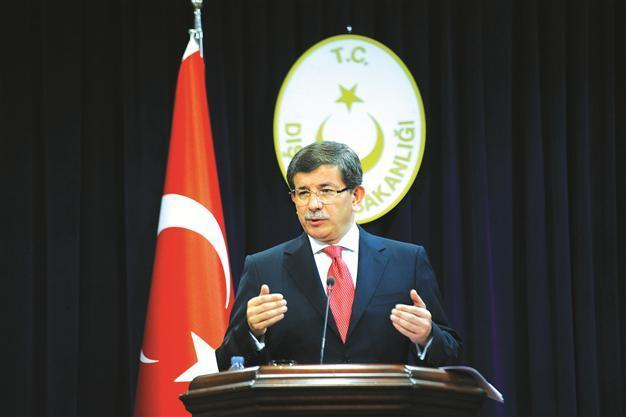Turkey popular but less so in Mideast: Survey
ISTANBUL - Hürriyet Daily News

Foreign Minister Ahmet Davutoğlu is seen in this file photo. A new survey reveals that the majority of people in the Middle East have a positive view of Turkey. DAILY NEWS photo, Selahattin SÖNMEZ
The majority of people in the Middle East have a positive view of Turkey, yet those who consider the country a model are on the decline, according to the results of a survey made public yesterday.
“The perception of Turkey in the Middle East” survey, conducted by the Turkish Economic and Social Studies Foundation (TESEV) and Friedrich Ebert Stiftung, showed that 69 percent of participants think positively about Turkey, down from 78 percent in the 2011 edition of the survey.
The survey conducted between Aug. 3 and Aug. 28 in 16 countries interviewed 2,800 people.
Overall, 66 percent of the participants think Turkey has made a positive contribution to peace in the Middle East and that Turkey should play a bigger role in the region. However, the number fell to 39 percent in Syria.
“Most of the participants think Turkey is the strongest political power in the region, they consider Saudi Arabia the strongest economic power and Iran the strongest military power,” the chairman of the TESEV Foreign Policy Program, Mensur Akgün, said yesterday during a press conference in Istanbul. “Forty-two percent of the participants think Turkey had a positive impact on the Arab Spring, however this percentage was 56 percent in 2011.”
Some 28 percent of the participants think Turkey is running a policy based on sectarianism. The number increases to 62 percent in Iraq, 55 percent in Iran, 53 percent in Syria and 37 percent in Saudi Arabia.
Hopes fall for the Arab SpringAccording to survey results, there has also been a decrease in hope for the future and positive opinion on the impact of the Arab Spring in local regions.
While 60 percent of the people thought the impact of the Arab Spring in their region was positive in 2011, this number fell to 47 percent in this year’s survey.
“Fifty-two percent of the participants said they are hopeful for the future of the region, however this number was 62 percent last year,” Akgün said.
Only 28 percent of the participants think Syrian leader Bashar al-Assad will be toppled, and 32 percent expect stability in the future of Syria.
According to Akgün, “Forty-six percent of the participants think the biggest threat for the Middle East comes from Israel, 21 percent think it is from the U.S., and 11 percent think Iran is the biggest threat for the region.”
